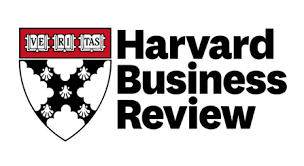
Weekly Business Insights from Top Ten Business Magazines | Week 325
Personal Development, Leading & Managing Section | 1
Extractive summaries and key takeaways from the articles curated from TOP TEN BUSINESS MAGAZINES to promote informed business decision-making | Since September 2017 | Week 325 | December 1-7, 2023

Why Career Transition Is So Hard
By Herminia Ibarra | Harvard Business Review Magazine | November–December 2023 Issue
Extractive Summary of the Article | Listen
Today people at all stages of their careers are asking themselves profound questions about the kind of work they do, how much of it they want to do, and the place it occupies in their lives. We’re asking ourselves these questions in part because fewer and fewer of us conceive of life as having the three “traditional” stages: a short early stage devoted to learning, a long middle stage dedicated to work, and a later stage devoted to enjoying one’s golden years. Instead, with growing frequency, we’re alternating between changing jobs and careers, pursuing opportunities for education, and making time for periods of rest and restoration.
Some of what makes changing careers difficult will be unique to you and your particular circumstances. But you’ll almost surely have to confront two challenges while in transition: a lack of institutional support and an unsettling loss of professional identity.
Lack of institutional support. Until recently, many of the important moves in our working lives were institutionalized, meaning they were well scripted by the communities and professions that oversaw them. Today, with the rise of nonlinear career paths, many of the transitions we make are “under-institutionalized.” There is no immutable series of steps for the change you need to make, and no telling how long it will take or how to measure your progress. Complicating matters, the direction of travel is often from large organizations, which have well-structured recruiting and hiring processes, to smaller players, private firms, and entrepreneurial opportunities in unstructured job markets.
Loss of professional identity. Emotional ups and down are a standard feature of any transition. Unfortunately, you’re likely to have to cope with them for longer than you might expect, for several reasons. If you’re an experienced executive, you probably have some very specific skills and knowledge, and that can make finding a new fit challenging, especially because many senior positions are not advertised publicly. More broadly, the current economic uncertainty can make it slower and harder to secure a job or financing for an entrepreneurial venture.
People know what they don’t want to do anymore, or what is no longer viable, but they don’t know what to do instead. So they delay getting started, feeling that they first need greater clarity or waiting until they’ve lost a job and are forced to make a change.
Usually we fail to change simply because we don’t know how to go about it. The problem lies in our methods, not our minds. Career change is iterative. You can’t line everything up in advance. You have to figure things out over time and make adjustments as you go. We need to hustle, follow our nose and should activate our networks, try lots of different things, often simultaneously, without fully settling on one. We need to learn and adapt in a world that rewards optionality and the exploration of many possible selves.
Embracing optionality and multiplicity in the search for a new career makes a lot of sense intellectually, but emotionally it’s a roller-coaster ride. That’s because it puts you in what anthropologists call a liminal state, where you must navigate between a past that’s clearly over and a future that’s still uncertain. Three important ways to make the process easier: diverge and delay, exploit and explore, and finally bridge and bond.
2 key takeaways from the article
- We struggle to pivot to the next career and by dint of hard work and determination ultimately finds a happy ending. That kind of simple, linear plotline doesn’t reflect the realities of today’s working world, in which jobs and careers are precarious, liminality can be long, and resolution—if there is any—tends to be short-lived. So we all need to get comfortable with a new kind of narrative that revolves around “the learning plot”—a story of ongoing struggle and adaptation.
- Being in transition is like losing the plot of your professional life. You need to diverge and delay, exploit and explore, and bridge and bond to find a new narrative thread. In doing so it’s essential to engage with others and tell them your story—again and again, as much to make sense of your experience as to enlist their help. This process of “self-reflecting out loud,” will propel you forward, in no small measure because others will respond, sympathize, commiserate, ask questions, call your bluffs, and share their own experiences in ways that will help clarify your thinking.
(Copyright lies with the publisher)
Topics: Career Transition, Personal Development
